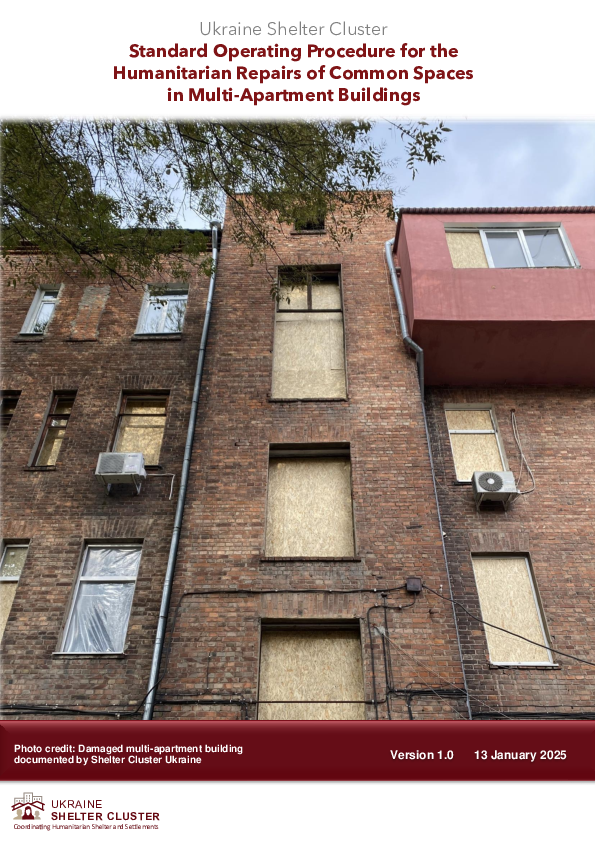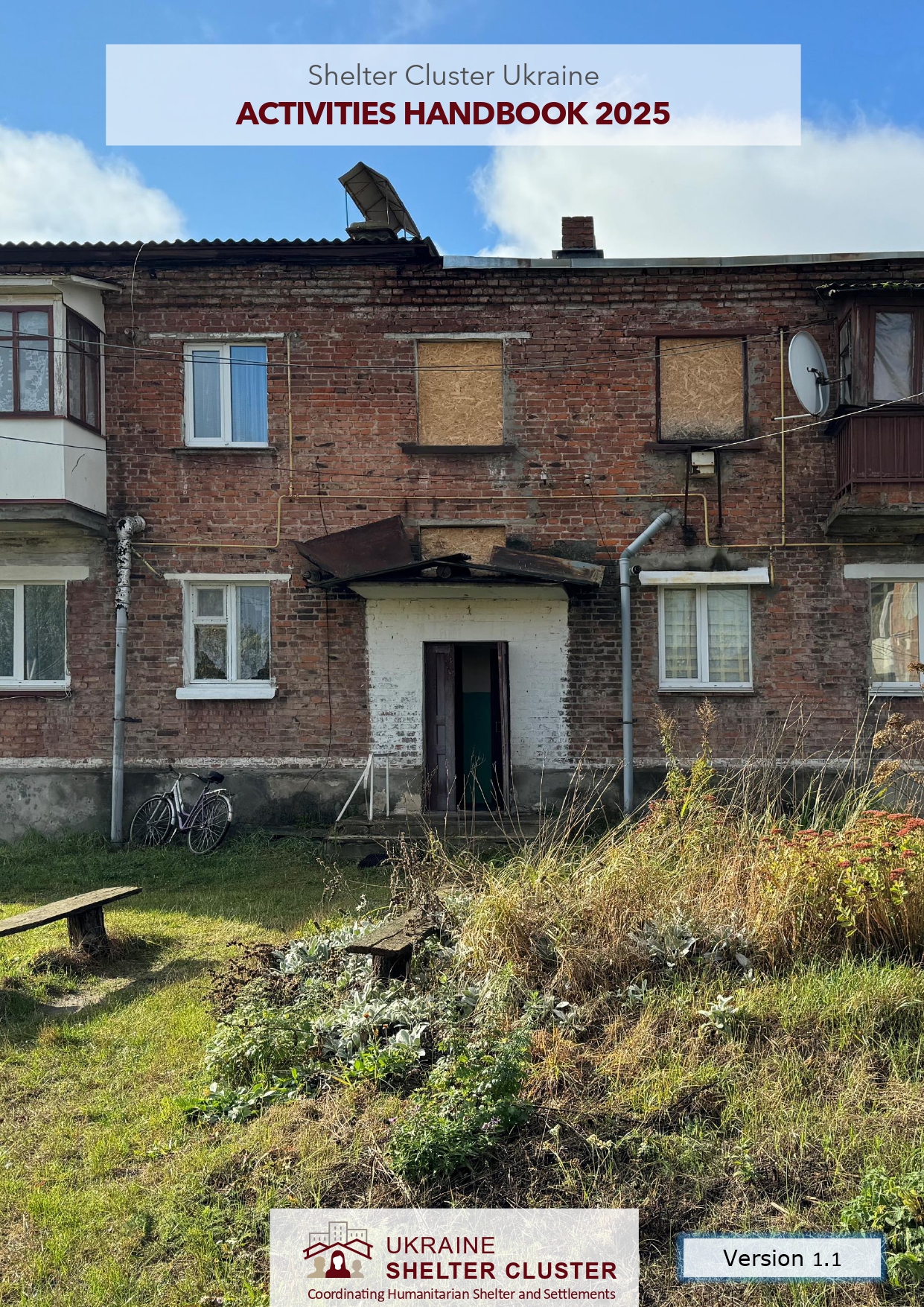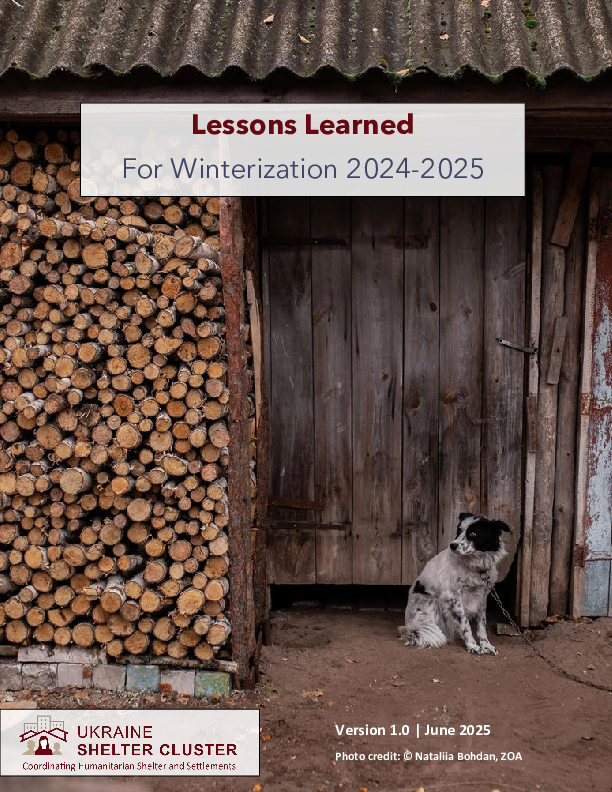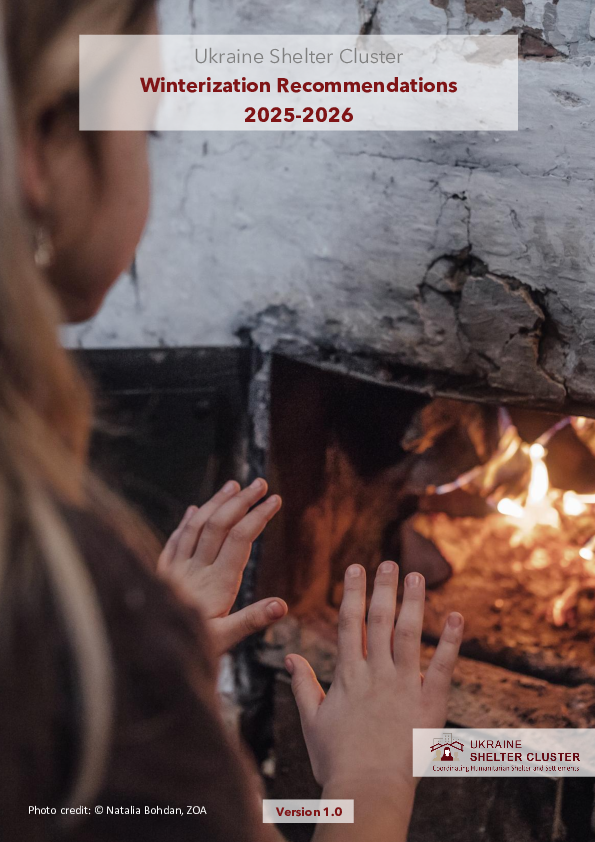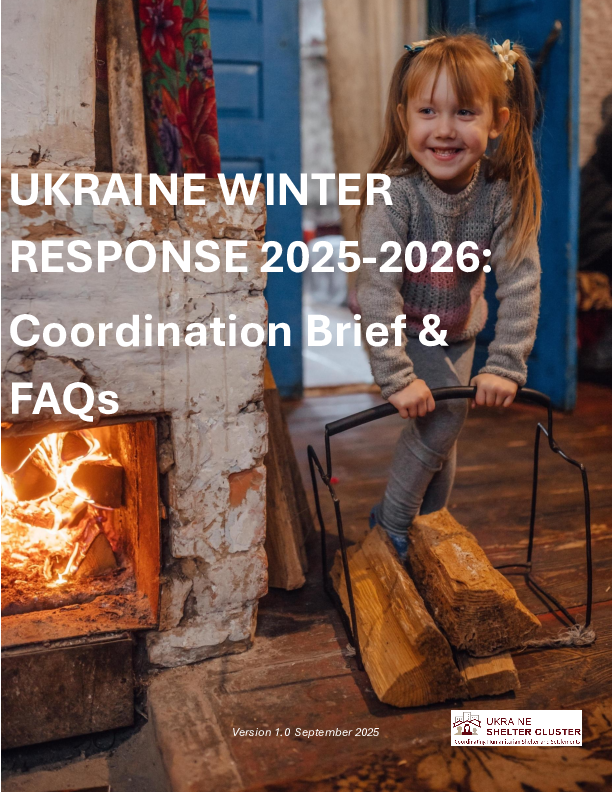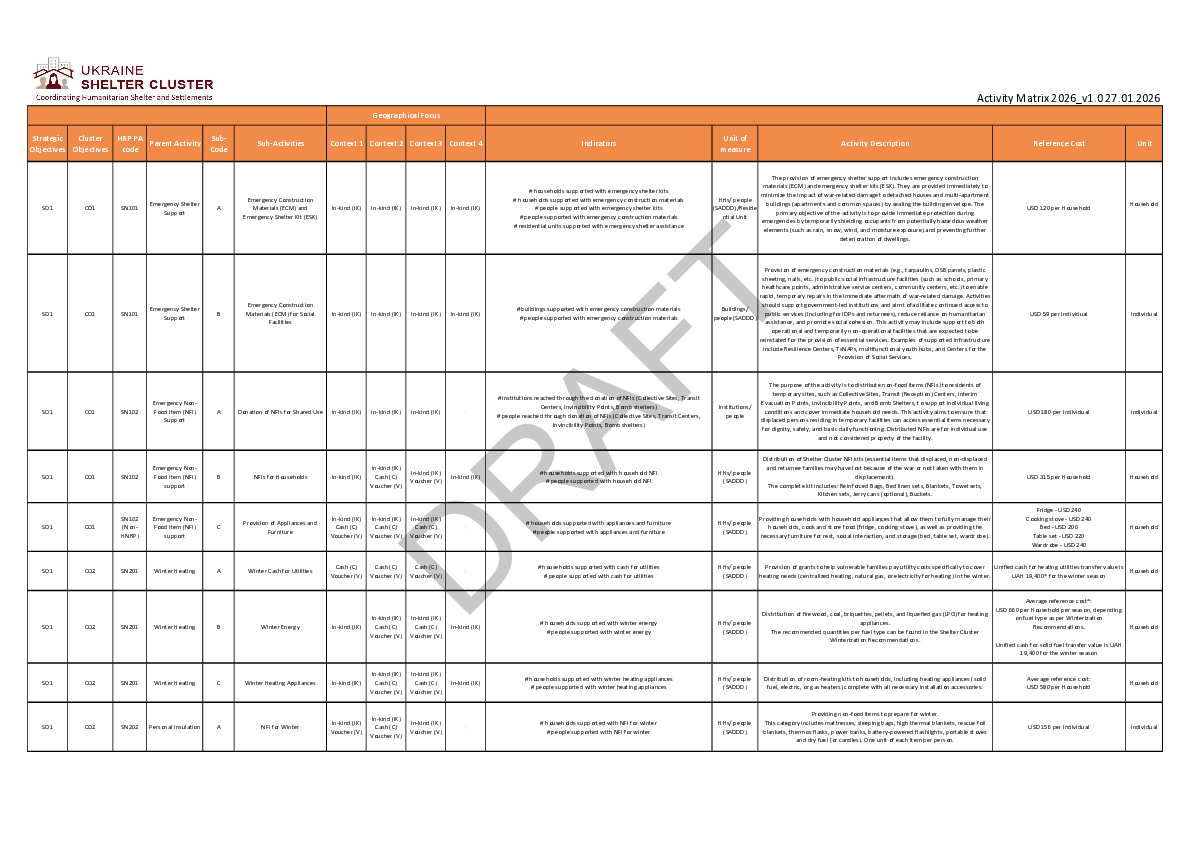Ukraine
Featured Documents
Overview
The repercussions of the Russian invasion of Ukraine on February 24, 2022, have given rise to a multifaceted humanitarian landscape. The conflict and subsequent occupation by Russia have presented many pressing challenges within the shelter cluster, demanding immediate attention.
The demographic profile of the People In Need (PIN) within Ukraine encompasses the war-affected non-displaced population and internally displaced population (IDP). The total number of the PIN for 2025 is about 6.9 million across the country, with a notable concentration in the crescent area in the north, east, and south along the contact line with the Russian army and the borders of the Russian Federation. Compounding the situation, the imminent onset of cold winter exacerbates the challenges, with systematic attacks on infrastructure by Russian forces posing a heightened risk to vulnerable Ukrainians exposed to extreme cold temperatures.
The impact on civilians has been profound, with the Russian military invasion resulting in civilian casualties and extensive damage to infrastructure, amounting to around 2.5 million housing units, as reported by Ukraine's Rapid Damage and Needs Assessment (RDNA4) in 2025. The conflict-affected population now grapples with a spectrum of housing repairs, ranging from minor fixes to complete reconstruction. Housing and livelihood pressures have intensified due to escalating rental costs in densely populated areas, rendering housing unaffordable for many internally displaced individuals. Shelling has disrupted essential services, including water, electricity, and gas supplies, necessitating comprehensive assessments and repairs to both rural and urban infrastructure.
Access constraints persist as challenges in reaching areas requiring assistance stem from minefields, constant shelling, a lack of access roads and bridges, areas under the occupation. Collateral damages resulting from ongoing battles further compound the difficulties faced by the affected population. In light of these circumstances, the Shelter Cluster must expand its contingency planning to effectively address evolving scenarios and uncertainties in the future. The Shelter Cluster reports reaching up to December 2024, providing Shelter and NFI support to about 2.3 million unique individuals through 192 cluster partners.

